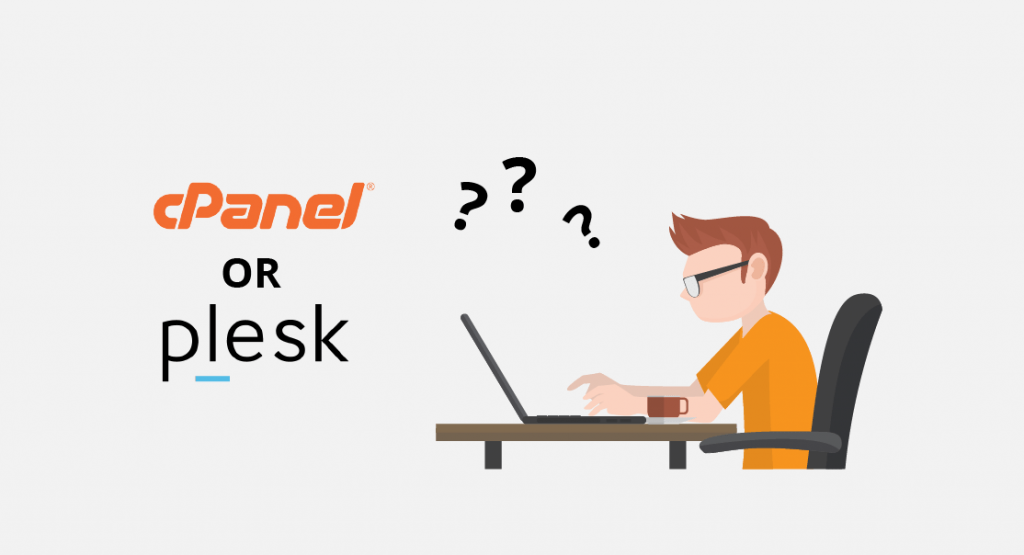If you’re looking for a control panel to help you manage your host WordPress website. Then with two of the most popular market choices, Plesk and cPanel, you can’t go wrong.
Plesk and cPanel are very similar in many ways, as they mostly allow administrators of websites to have more control over their web presence. Nevertheless, while both applications work in a similar fashion, they do vary on some major points that might help you decide which panel is right for you.
Here are some of the major core differences between Plesk and cPanel experience.
Operating System
You need to consider the operating system you want to use before you can start comparing the features available from Plesk and cPanel. For example, Plesk is generally design to cater for Windows users, and in a Windows environment it will run much better than cPanel. Additionally, Linux OS is sponsor by cPanel.
Developer Focus
Both platforms are designed to be intuitive and user friendly. Plesk was however designed explicitly with the novice in mind. While cPanel was designed to support developers working with more advanced applications. Plesk is very easy to navigate, and it is sectioned based on features. While cPanel provides more powerful options and allows users to start and restart basic commands with services. The choice you choose may depend on the level of experience you have as a developer.
User Interface
User interfaces are very similar on Plesk and cPanel. Unlike cPanel, however, Plesk is a cross-platform solution that could be running on Windows server. Plesk also allows you to complete server administration tasks and integrate from your panel with third-party tools so you can manage multiple parts of your website in one place.
Plesk defines itself as a full “WebOps” control panel, meaning you get a lot of extreme protection, and the ability to use a single control panel to handle multiple servers. You also have the extensibility to build the best suited Plesk implementations for your business.
Security
Both panels are highly secure, with only scripts on the server being able to access the databases. You need to whitelist any additional IP addresses you want to gain access. However, there are some arguments about which security services are easier to use.
Support
Plesk and cPanel both provide award-winning levels of customer support. The teams behind both companies are almost constantly available, although it’s worth noting that Plesk is the only supplier with a team that you can reach 24/7. Additionally, cPanel is only available Monday to Friday for 12 hours a day, and Saturday and Sunday for 10 hours a day.
Extensibility
While many of the features available from Plesk and cPanel are the same. Their extensibility and the integrations they endorse are where the control panels start to differ greatly. For example, Plesk is certainly the choice for anyone planning to use Docker for their hosting needs, or for any purpose already using Docker.
If you intend to use the Docker route, you will need to do some serious tuning in your cPanel operation.
The cPanel solution isn’t as robust as Plesk. But you can search through the app store to see what kind of integrations you can expect to work with if you want to use cPanel rather than Plesk.
Compatibility
As described above, cPanel is a Linux-based program that means you need to run an operating system that is supported to take full advantage of the technology, like Cloud Linux, Red Hat Linux, Amazon Linux, and CenOS. On the other hand, as it is a cross-platform program, Plesk is somewhat more flexible when it comes to compatibility. Plesk can run on Windows Server, Debian, Ubuntu, CLoudLinux, Virtuozzo Linux and CentOS.
Unfortunately, because Plesk is more versatile, it doesn’t mean you can switch between operating systems on a random basis. For the operating system you plan to use from day one, you will need to purchase the Plesk service.
Pricing Plans and Package Options
Though it should never be the only consideration you think about, budget is a considerable factor in any technology stack decision. cPanel comes with three central pricing plans including services for:
- Solo hosting
- VPS hosting
- Dedicated hosting
Customers can pay on a month-by-month basis, or pay up-front for one, two or three years at a time in exchange for a discount. CPanel also discounts depending on how long you pay for. And appeals to three different users, including Web Admins, Web pros, and Web Hosts. The features available with each edition of cPanel vary.



